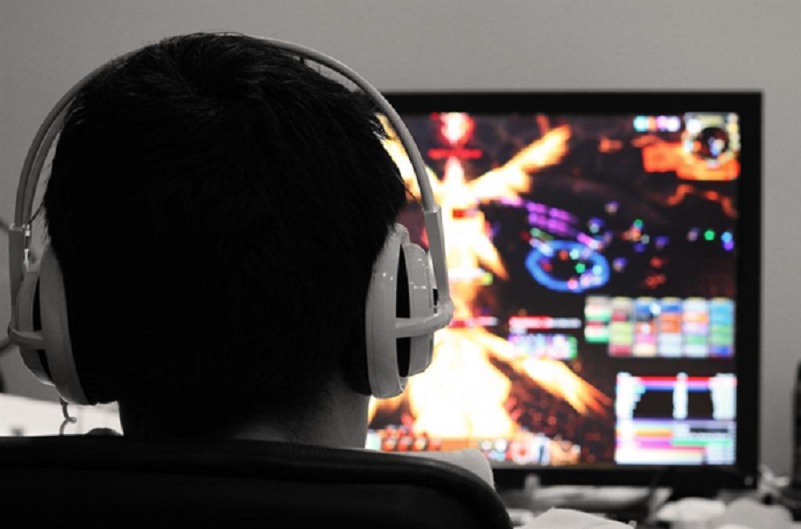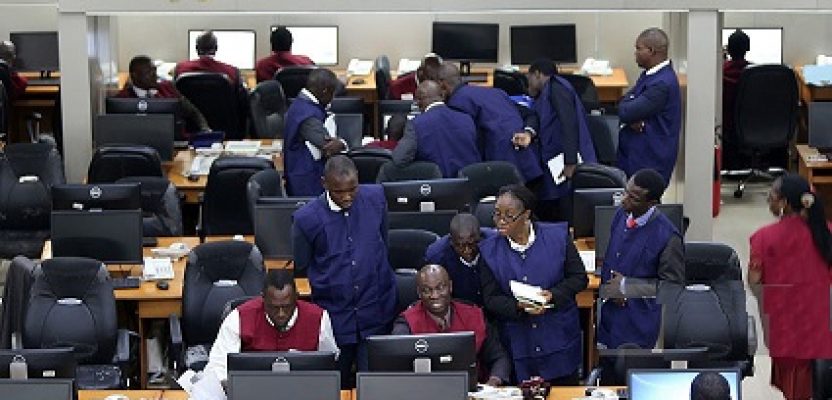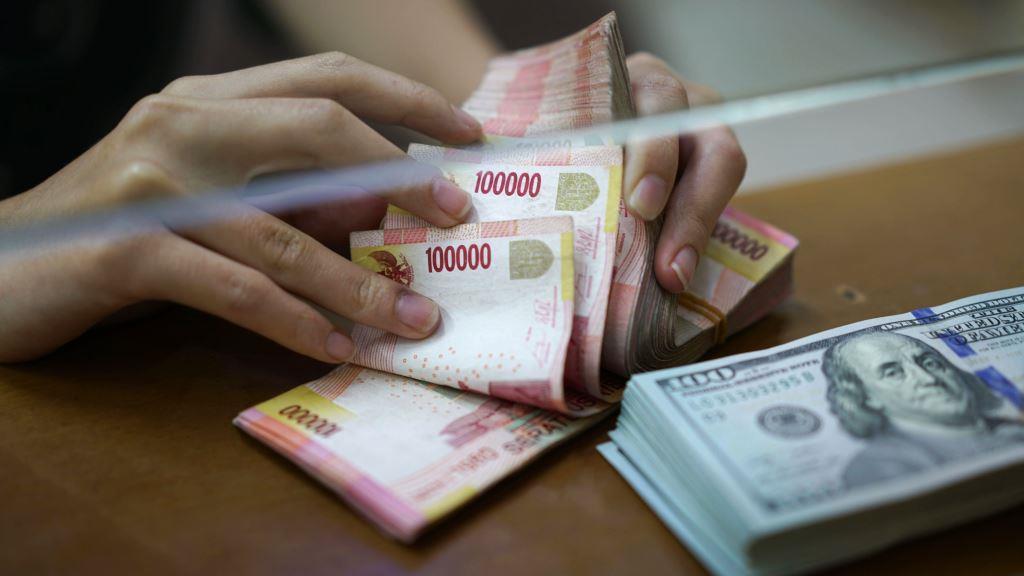Economy
Middle East Gaming At A Whole New Level

The gaming industry in the Middle East is rapidly evolving, putting the region on track to become the gaming industry’s epicenter. According to recent developments, Middle East and North Africa (MENA) countries are revolutionizing gaming and related technologies faster and more uniquely than most established hotspots, including the United States and Western Europe.
Gaming has become a popular pastime, a social activity, and a source of technology to other e-commerce sectors as a result of the multifaceted revolution. At the current rate of change, the Middle East is poised to become a major player in the global gaming industry.
The Shifting Status of Gambling in the Middle East
In the traditionally religious and conservative Arab world, one of the most notable changes in recent years is the increasing acceptance of gaming. What was once considered a mere leisure pursuit has now become a socially embraced activity, driven in part by the rise of online gaming. Particularly among the younger generation, gaming has become an integral part of daily life, fueling the rapid growth and expansion of the industry in the MENA region.
The COVID-19 pandemic also had an impact on this change. In the face of social restrictions, curfews, and lockdowns, people sought hobbies and means to socialize. Gaming provided a nearly ideal balance of entertainment and socialization. Despite riding this worldwide wave, as the rest of the world reduced their video gaming activities in the aftermath of the epidemic, the Middle East increased their engagement.
Boosting Governmental Assistance
The Middle East’s relatively new gaming culture is built on the support of supportive governments. Administrative authorities in the Middle East are rising to the challenge of supporting the gaming industry through consistent policy shifts. Government assistance is critical to the growth of the gaming industry. Through various initiatives, most administrations in the region encourage and support participation and spectatorship.
The governments of Saudi Arabia and the United Arab Emirates are particularly well-known for their accommodative policies, as they provide existing and aspiring players, gamers, and programmers with access to modern studios. Saudi Crown Prince Mohammed bin Salman announced plans in 2022 to produce more than 30 games domestically and create more than 39,000 eSports-related jobs.
Many governments in the Middle East have placed their bets on the gaming industry’s ability to spur economic growth and are working to expand it.
The Middle East is Changing into a Tech Incubator
Gaming technology has been altered throughout the Middle East, and more changes are on the way. The region quickly absorbs gaming technology and contributes to its widespread adoption through mass consumption. Residents in the region have easy access to games via the internet, which has boosted the number of people who play online on trusted sites such as Arabicbet.org. They also consume a significant amount of gaming content through various streaming platforms and social media.
The Middle East is also actively involved in the development and incorporation of new technologies into the gaming industry. Technologies and technological initiatives such as virtual reality and the metaverse are quickly gaining traction among the region’s large gaming population.
The region’s massive gaming demand is also attracting publishers and developers from all over the world. Gaming technology experts are relocating to fast-rising tech hubs like Dubai, and tech firms are establishing offices in the region to capitalize on its potential. With these trends, the Middle East is on track to attract a large number of talented professionals capable of developing better technologies and assisting in the creation and development of the gaming industry’s future.
The Investment Rush
The Middle East has proven a lucrative location for gaming investments. Unlike in other places, investors in this region show no signs of slowing down. For example, Abu Dhabi Gaming is working to attract game developers in order to create a self-sufficient gaming ecosystem in the region.
The situation is similar in other Middle Eastern countries. By 2022, gaming startups had raised more than $16 million through various deals, an increase from $15 million in 2021. Given the attractiveness of the Middle East’s gaming industry, investments are expected to grow further in 2023.
The gaming industry in the Middle East is thriving, as is the video game market in North Africa. Major corporations, including Tencent Games, are establishing operations in the region, and several other international investors are expected to follow suit in the near future. The Middle East’s gaming market is projected to be worth more than $5 billion by 2025.
Final Thoughts
From technology to consumption and investment, the Middle East’s gaming ecosystem is swiftly evolving toward greatness. This is due to a number of growth accelerators acting in the modern industry’s favor. If the growing trend continues, the region may even surpass the United States as the worldwide gaming leader by the end of the decade.
Economy
Unlisted Securities Shed 0.21% on Profit-taking

By Adedapo Adesanya
It was a bad day for the NASD Over-the-Counter (OTC) Securities Exchange on Monday, February 23, after it slumped 0.21 per cent at the close of business.
This pullback was influenced by profit-taking by investors in four securities, which overpowered the gains recorded by six others.
According to data, Central Securities Clearing System (CSCS) Plc dipped N3.79 to sell at N67.21 per unit compared with the previous N71.00 per unit, UBN Property Plc lost 13 Kobo to close at N1.98 per share versus N2.11 per share, Resourcery Plc fell 3 Kobo to 36 Kobo per unit from 39 Kobo per unit, and Geo-Fluids Plc depreciated 1 Kobo to close at N3.31 per share versus N3.32 per share.
As a result, the bourse’s market capitalisation went down by N5.04 billion to N2.384 trillion from N2.389 trillion, and the NASD Unlisted Security Index (NSI) decreased by 8.42 points to 3,985.90 points from 3,994.32 points.
Business Post reports that NIPCO Plc rose N23.00 to N253.00 per unit from N230.00 per unit, MRS Oil Plc added N14.50 to close at N214.50 per share versus N200.00 per share, FrieslandCampina Wamco Nigeria Plc grew by N1.85 to N93.40 per unit from N91.55 per unit, NASD Plc soared 40 Kobo to N51.28 per share from N50.88 per share, First Trust Mortgage Bank Plc advanced by 12 Kobo to N1.32 per unit from N1.20 per unit, and Food Concepts Plc improved by 6 Kobo to N3.76 per share from N3.70 per share.
As for the trading data, the volume of securities jumped 99.7 per cent to 7.3 million units from 3.7 million units, but the value depleted by 26.8 per cent to N61.8 million from N84.5 million, and the number of deals slipped 7.1 per cent to 39 deals from 42 deals.
At the close of trades, CSCS Plc was the most active stock by value (year-to-date) with 32.9 million units sold for N1.9 billion, followed by Geo-Fluids Plc with 120.6 million units valued at N473.4 million, and Resourcery Plc with 1.05 billion units exchanged for N408.7 million.
Resourcery Plc closed the session as the most active stock by volume (year-to-date) with 1.05 billion units worth N408.7 million, followed by Geo-Fluids Plc with 120.6 million units valued at N473.4 million, and CSCS Plc with 32.9 million units traded for N1.9 billion.
Economy
Customs Street Opens Week Bullish After 0.66% Surge

By Dipo Olowookere
The Nigerian Exchange (NGX) Limited ended the first trading session of the week on a positive note after it chalked up 0.66 per cent on Monday.
The gains recorded yesterday were boosted by the 3.42 per cent rise by the insurance sector, the 1.44 per cent surge by the banking index, and the 1.30 per cent leap by the industrial goods counter. They offset the 0.20 per cent loss posted by the energy sector and a 0.11 per cent decline suffered by the consumer goods industry.
Consequently, the All-Share Index (ASI) closed higher by 1,273.78 points to 196,263.55 points from 194,989.77 points, and the market capitalisation appreciated by N805 billion to N125.969 trillion from N125.164 trillion.
Business Post observed that investor sentiment turned bearish during the session after Customs Street ended with 34 price losers and 33 price gainers, representing a negative market breadth index.
Fortis Global Insurance gained 10.00 per cent to trade at 66 Kobo, Okomu Oil expanded by 10.00 per cent to N1,605.60, Fidson rose by 9.90 per cent to N95.50, NPF Microfinance Bank rose by 9.89 per cent to N6.89, and Infinity Trust Mortgage Bank jumped 9.84 per cent to N17.30.
On the flip side, The Initiates weakened by 10.00 per cent to N17.55, Deap Capital deflated by 9.97 per cent to N6.86, LivingTrust Mortgage Bank went down by 9.92 per cent to N5.90, Multiverse lost 9.92 per cent to close at N22.70 per cent, and Ellah Lakes shrank by 9.77 per cent to N11.55.
Yesterday, market participants traded 1.3 billion shares worth N31.5 billion in 95,091 compared with the 820.5 million shares valued at N28.3 billion in 63,507 deals last Friday, indicating an increase in the trading volume, value, and number of deals by 58.44 per cent, 11.31 per cent, and 49.73 per cent apiece.
Japaul ended the session as the busiest stock after selling 474.0 million units worth N2.0 billion, Chams traded 51.5 million units for N221.3 million, Jaiz Bank exchanged 48.3 million units for N566.9 million, Secure Electronic Technology transacted 46.3 million units worth N68.8 million, and Mutual Benefits sold 42.5 million units valued at N242.5 million.
Economy
Naira Further Crashes to N1,349/$1 at Official Market

By Adedapo Adesanya
The first trading day in the currency market in Nigeria ended bearish for the Naira as its value further weakened against the US Dollar in the Nigerian Autonomous Foreign Exchange Market (NAFEX) on Monday by N2.92 or 0.22 per cent to N1,349.24/$1 from the N1,346.32/$1 it was traded last Friday.
Also in the spot market, the Nigerian currency depreciated against the Pound Sterling by N6.62 during the trading day to close at N1,821.87/£1 versus the preceding session’s N1,815.25/£1, and lost N6.80 on the Euro to settle at N1,591.42/€1, in contrast to the previous rate of N1,584.62/€1.
At the GTBank forex desk, the Nigerian Naira crashed against the greenback yesterday by N1 to quote at N1,357/$1 versus the preceding session’s closing value of N1,356/$1, but in the black market, the Naira appreciated by N5 to close at N1,365/$1 compared with the preceding trading day’s N1,370/$1.
The Naira slide came amid renewed pressure as weekly inflows declined, as Bureaux De Change (BDC) operators were unable to purchase Dollars from banks two weeks after the Central Bank of Nigeria (CBN) reopened the official FX Market window to them.
It had been expected that BDCs would help to further deflate the parallel market premium, but according to reports, BDC operators had yet to commence FX purchases from commercial banks, two weeks after the apex bank said legitimate agents can access up to $150,000 from the banks.
There were no FX inflows from the CBN during the past week, according to a report by the research department of Coronation Merchant Bank.
Meanwhile, Nigeria’s external reserves, which provide the CBN with firepower to support the naira, rose to $48.77 billion as of February 19, 2026.
Meanwhile, the cryptocurrency market was in the red as a broader risk-off shift tied to an emerging “AI scare trade” in equities is weighing on crypto markets.
This is leading traders to sell, while the sharp liquidation events that typically attract dip buyers have seen no such move recently, with Bitcoin (BTC) down by 3.2 per cent to $62,901.86.
Further, Ethereum (ETH) depreciated by 2.5 per cent to $1,821.13, Cardano (ADA) slid 1.9 per cent to $0.2571, Litecoin (LTC) went down by 1.9 per cent to $50.45, Solana (SOL) shrank 1.8 per cent to $76.54, Dogecoin (DOGE) declined by 1.7 per cent to $0.0912, Ripple (XRP) slumped 1.2 per cent to $1.32, and Binance Coin (BNB) lost 0.6 per cent to sell for $589.88, while the US Dollar Tether (USDT) and the US Dollar Coin (USDC) closed flat at $1.00 each.
-

 Feature/OPED6 years ago
Feature/OPED6 years agoDavos was Different this year
-
Travel/Tourism10 years ago
Lagos Seals Western Lodge Hotel In Ikorodu
-

 Showbiz3 years ago
Showbiz3 years agoEstranged Lover Releases Videos of Empress Njamah Bathing
-

 Banking8 years ago
Banking8 years agoSort Codes of GTBank Branches in Nigeria
-

 Economy3 years ago
Economy3 years agoSubsidy Removal: CNG at N130 Per Litre Cheaper Than Petrol—IPMAN
-

 Banking3 years ago
Banking3 years agoSort Codes of UBA Branches in Nigeria
-

 Banking3 years ago
Banking3 years agoFirst Bank Announces Planned Downtime
-

 Sports3 years ago
Sports3 years agoHighest Paid Nigerian Footballer – How Much Do Nigerian Footballers Earn













